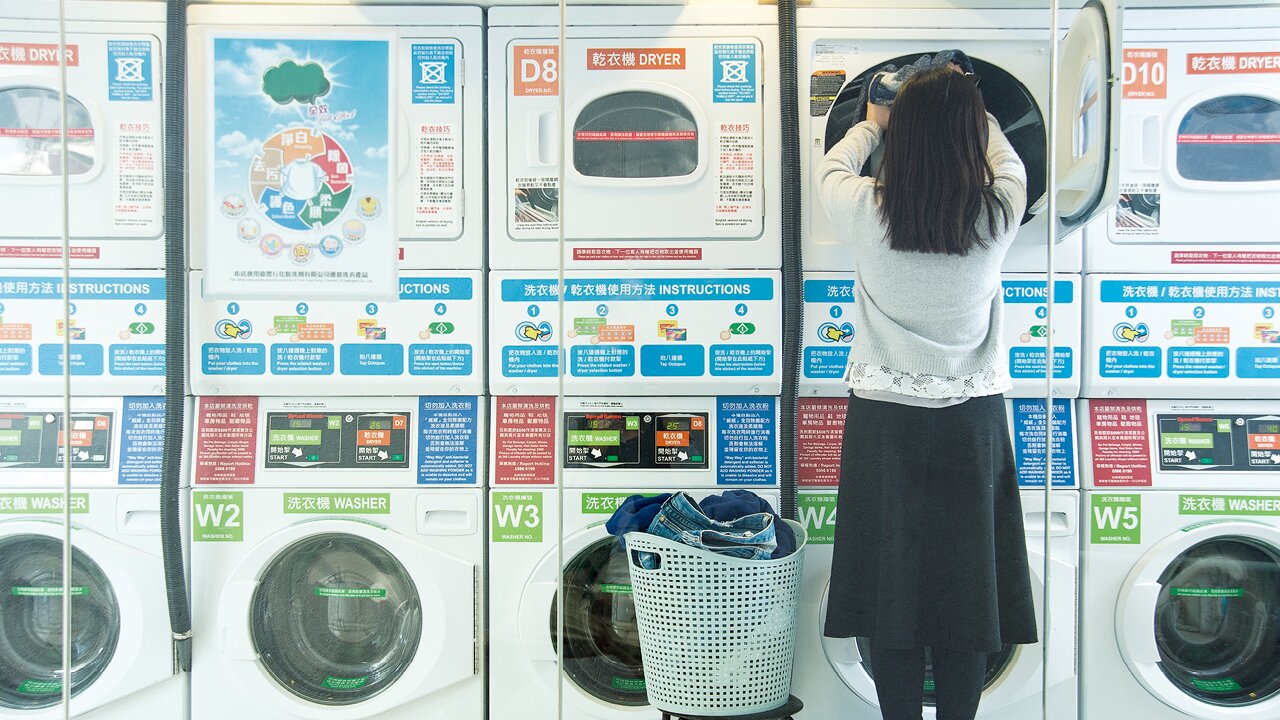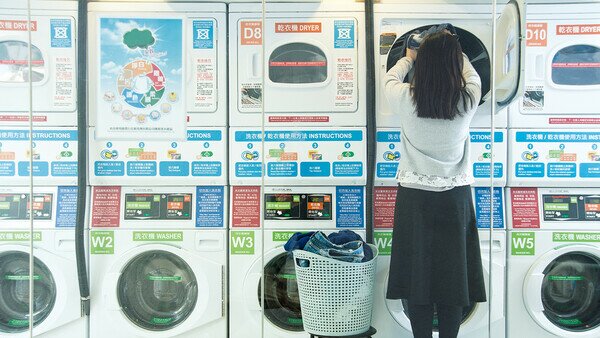
24-hour self-service laundry is much in need bringing great convenience to consumers, especially those living in crammed home environment. In a comparison of 9 launderette services, the Consumer Council has found the majority are without staff present on the premises. Should consumers encounter operational problem or machine breakdown, their only means to assistance is generally via a non 24-hour service hotline or social media platform of related launderette. All self-service laundry shops covered in the survey stipulated that they are not responsible for any damage or loss of customers’ laundry or drying. The differences in the costs of washing and drying clothes were also found huge, at 150% and 75% respectively. Further, all detergents used in the laundry shops surveyed do not contain brand or ingredient labelling that consumers were unable to track if allergy-causing chemicals were contained. Consumers should therefore be guarded on the risks involved.
In the survey, between December last year and January this year, the Council sent out a questionnaire to 15 self-service laundry shops, to which 7 responded. Among those which did not reply, 2 are operators with chain outlets, through visits made to the shops/outlets and surfing the websites, the survey team was able to collect the information on their fees and charges, bringing to the number of laundry shops covered in the survey to a total of 9.
All laundry shops surveyed open round-the-clock, each normally operating with 3 to 8 commercial washers and dryers respectively, which can be activated by payment with coins, Octopus or value stored cards. For washing service of 25 to 40 minutes, the charges ranged from $10 to $25, varying in price by a substantial 150%. As for drying taking 30 minutes or more, the charge was between $20 and $35, a price difference of 75%. The load per wash and drying weighs from 6 to 14 kg, the more common being 8 kg.
The washers in the self-service shops surveyed are equipped to automatically fill in the laundry detergent for use. While this may save consumers the trouble of bringing their own, 8 laundry shops provided no indication as to the brand and model of the laundry detergent but only “professional/commercial laundry detergent” or “biological enzyme laundry detergent”. Consumers have no way of knowing the ingredients of the detergent. As laundry detergents and fabric softeners often contain preservatives, fragrances and colouring matters of allergy-causing ingredients, consumers with sensitive skin to allergy should pay particular attention.
In 5 of the laundry shops surveyed are installed with self-help vending machines selling laundry pods/capsules and fabric softener dryer sheets for consumers to fill into the washers additionally but again the packaging came without any product information. 1 shop even only indicated on the machine the type of product and quantity on sales. Shop owners are reminded that they bear the responsibility to offer adequate product information both within the shop premises and on the product packaging, especially with regard to safety warnings about product ingredient, usage portion and date of manufacture to enable consumers to understand and correctly use the product, and avoid problems such as damaging the clothes or causing skin allergy.
The survey also found that 4 laundry shops had considerable leeway in the operation involved in extending the drying time of the dryer. Furthermore, 6 were found to operate with drying machines that offer no choice of temperature setting for drying but only the single pre-set high temperature. Drying garments in overly high temperature may result in discolouration, shape distortion or shrinkage.
Despite the majority of the self-service laundry shops surveyed offer no alternative option in setting your own drying temperature, 3 of them laid down in their service terms and conditions that if consumers do not follow the care labelling instructions in the washing and drying of the garments, the shops would not be held responsible for any damage sustained. So, self-service laundry may not be suitable if the garments carry specific care instructions on drying temperature.
Further, the survey found that while most laundry shops have set procedures in dealing with various types of operational problems or machine failure, none listed out in any detail in the shops their policy and terms and conditions with regard to complaints and compensation. There is clearly inadequate consumer protection and room for improvement in transparency and emergency handling.
Since no staff is around in self-service laundry shops, consumers are often left to non 24-hour service hotlines, social media platforms or communication apps in dealing with operational or mechanical breakdown, which may take one whole day in receiving a response.
Consumers using self-service laundry are advised to heed the following:
-Follow the care labelling instructions before drying, divide the garments into groups according to the care labels and set the temperature suitable for their drying to reduce the risks of damage;
-Do not overload the washer with excessive quantity of clothes to avoid ineffective water discharge, nor overload a dryer;
-It is not recommended to add extra laundry detergents or capsules into a washer that fills in laundry detergent automatically, to avoid producing excess foam that may affect the operation of the machine;
-In the event of machine failure during washing and drying, take photo of the malfunction for record, and notify the shop by email, and also record the verbal promise of the staff in email for future protection;
-People with respiratory tract allergy should avoid staying in a self-service laundry shop for a prolonged period of time to minimise contact with Volatile Organic Compounds (VOC), which might be emitted from laundry detergents and fabric softeners.
The Consumer Council reserves all its right (including copyright) in respect of CHOICE magazine and Online CHOICE.



